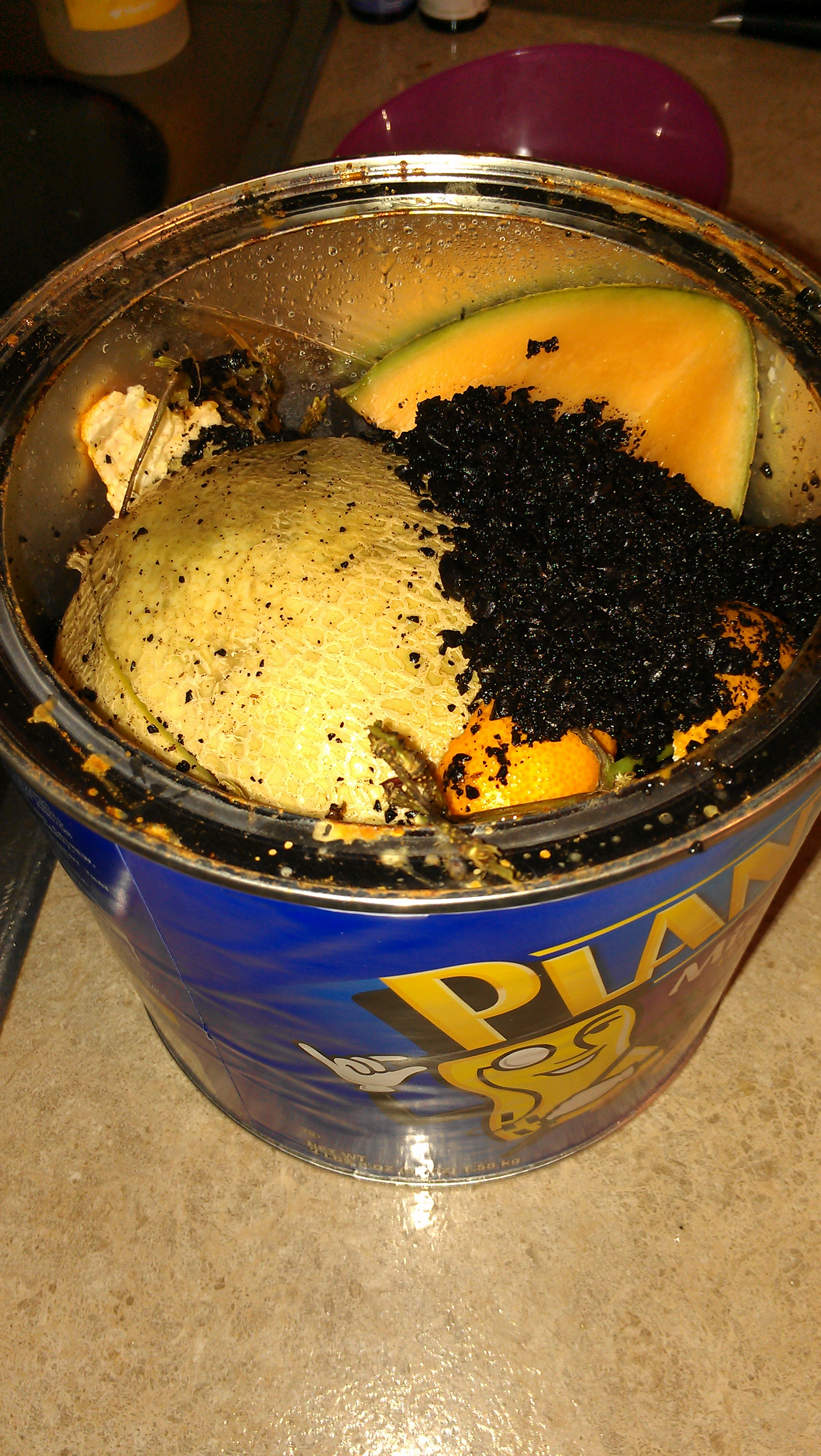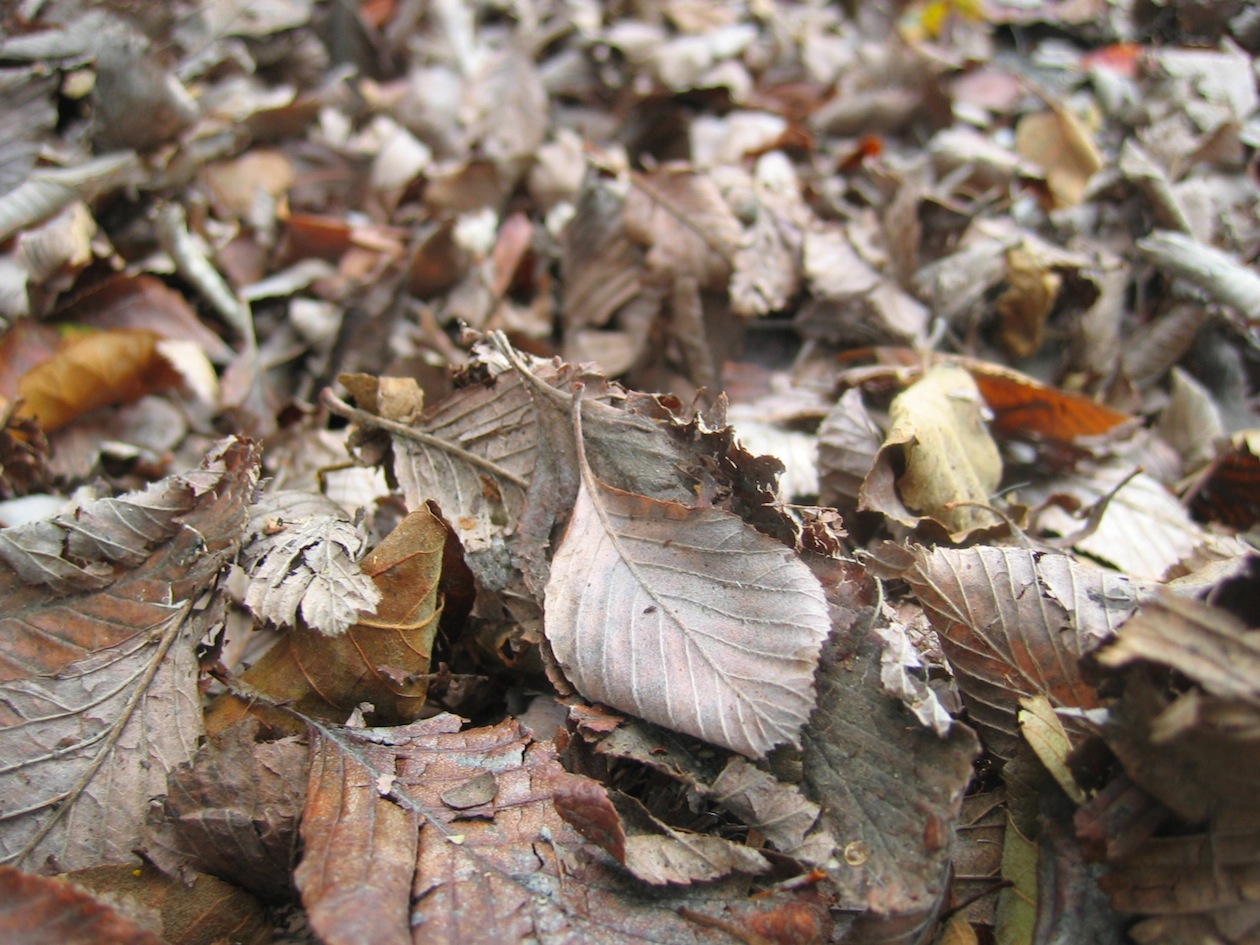So now that we know that we want to compost, and we know what type of compost bin we will use… what do we fill it up with?
The general rule of thumb is, if it rots, you can put it in your compost. There are some exceptions, of course so we can use the compost within a year or two, and we don’t grow weeds in the compost. Also, we want to make sure there is an even mix of “browns” and “greens” in the compost so it breaks down at a reasonable rate, and doesn’t get stinky and gross!
In general, you want about three parts greens to one part browns. I typically will put in our kitchen scraps, then cover them with dried leaves, garden clippings, or something similar to avoid flies and another annoying bugs.
Typical Greens:

- Food scraps
- Apple cores, potato peels, coffee/tea grounds, rice, beans, pasta, etc.
- Think about whether it grows from the ground or is close to it’s original ingredient… if it is, you can compost it.
- Fresh garden clippings and scraps
- Weeds with the seeds removed, plants that are done producing, grass clippings, fresh leaves
- Bird/bat guano, steer manure (if you happen to have some laying around! hehe)
Typical Browns:
 Dried yard clippings and scraps
Dried yard clippings and scraps
- Anything listed above for garden clippings and scraps becomes a brown when you let it dry out.
- The easiest way I’ve found to keep a nice stock of browns is to keep two bags of leaves from the autumn to use throughout the year
- Hay, twigs, tree bark
- Larger sticks will take a long time to compost and aren’t recommended
- Human and pet hair
- Fabric scraps from natural materials like wool, cotton, and hemp
Things to Avoid:
- Animal based food scraps
- This can attract unwanted pests
- Diseased plants and aggressive weeds
- You don’t want the disease or the weed transplanting into your finished compost!
- Cat and dog droppings
- Eggs shells if you are in a hurry to use your compost – otherwise it has valuable nutrients
- Treated wood products
- The chemicals can be harmful to break down
Hope that helps! Any other tips from those who have a compost?
The rest of the series to check out!
- Composting Basics: 3 Reasons to Start a Compost (January 1, 2013)
- Compost Bins - What Works for You? (January 10, 2013)
- What Can Be Composted? (January 17, 2013)
- Composting: What About When... (January 23, 2013)
- When is Compost Finished, and What to Do With It? (January 31, 2013)




[…] get gross, but if you have a decent mix (roughly 3 browns to 1 greens… see last week’s post for what greens and browns are), the chances of maggots and other disgusting creatures inhabiting […]